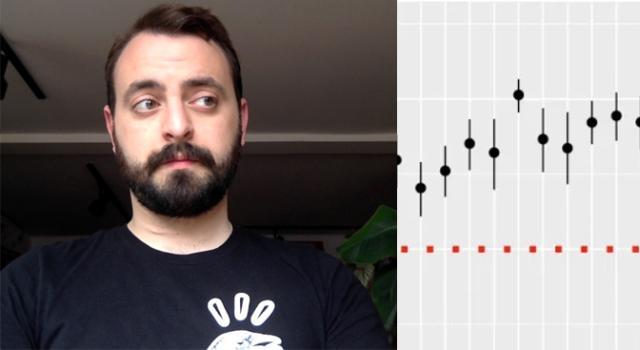Tutorials Initiate Students To Take Initiative Over Their Learning
Hundreds of Hampshire first-year students are transitioning to independence over their learning this fall, their first term at a college that invites them to design their studies. Students coming from high schools with regimented curriculum and lecture classes are getting their first taste of Hampshire’s special sauce: courses that span disciplines in inventive ways, in classrooms where students face each other and learn not by lecture but by discussions facilitated by the professor.
Perhaps the best example of this is the first-year tutorial. This fall, all incoming students chose a tutorial course from about 30 offerings across disciplines: ethnography, sculpture, social justice, data science, protest traditions, graphic novels, and the Syrian refugee crisis, for example.
One tutorial is led by a professor of psychology who has helped develop Hampshire’s unique model of teaching and learning over almost five decades. In his 46th year at Hampshire, Neil Stillings describes his tutorial, Cognitive Science: Minds, Brains & Intelligent Machines, as “a Hampshire-style introduction to the numerous fields of cognitive science.” The course eases first-year students into the field as they explore contrasting theoretical perspectives, major findings, and key research methods.
“This introduction to cognitive science has really only been taught at an intermediate to upper level for a long time,” says Stillings, who has been at Hampshire since 1971, a year after the college was founded. “The goal is to introduce students to how to think in this field. We answer questions such as, What do cognitive scientists do? and, What’s their approach to thinking about minds and brains?”
The School of Cognitive Science, which Stillings co-founded and previously served as dean, focuses on the study of mind, brain, behavior, and intelligent technologies. The school integrates ideas and methods from such fields as psychology, neuroscience, computer science, philosophy, linguistics, evolutionary biology, animal behavior, education, and anthropology.
“We have a long history at Hampshire of initiating students in a program that requires much more initiative than at other colleges,” Stillings says. “We think we can get all our undergrads to a point where they can independently produce a capstone project in their final year. Only a handful of institutions do this, it’s a very significant enterprise. Faculty at other liberal arts colleges have said to me, That’s impossible. And I say, That’s interesting, because we’re doing it.”
Readings are drawn from books and scientific journals; students complete short writing assignments and a final paper on a topic of their choosing. Significant time is devoted to discussions. ”Students talk about issues and think about their own intuitions about minds and brains and intelligent computers,” says Stillings, who earned his PhD at Stanford and has been the principal investigator for two major National Science Foundation–supported projects to study science learning in college students.
He says an example of a question discussed by students might be, “Would a robot with human-level intelligence have to have emotions?” This forces students to think about what emotions do and in what sense they are mandatory in an intelligent system, he explains, adding, “In this way, they begin to see how their intuitions line up with how a professional cognitive scientist thinks.”
Hampshire's tutorials are led by professors who serve as the academic adviser for all students in their class for the whole of Division I. That’s another ingredient in the special sauce: Advising is more intensive at Hampshire than at traditional colleges, and advisers commonly become mentors and sometimes even collaborators on research and projects in the upper Divisions.
Another tutorial that connects broad disciplines and big ideas is Molecular Metaphor, taught by Assistant Professor of Human Biology Megan Dobro and her colleague Ramon Elani. The course uses the concept of metaphor to explore where science and philosophy overlap.
“This tutorial is about taking two things that seem to have very little to do with each other and finding all these linkages in ways we never expected to,” says Elani, who holds a PhD in literature from the University of Connecticut. “These ideas could be enlightening for both the sciences and the humanities.”
Dobro says the course was designed to ease science-averse students into discussing scientific concepts. For those already excited about science, the course provides “a way to talk about the big, exciting ideas in a big, philosophical way,” she says. In-depth discussions of these concepts form the backbone of the class.
Dobro, who received her PhD in molecular biology from the California Institute of Technology (Caltech), stresses that the course is specifically designed for first-year students with any level of interest in science. The reading list consists of the following books:
- A Thousand Plateaus: Capitalism and Schizophrenia, a 1980 philosophy book by Gilles Deleuze and Félix Guattari, respectively a philosopher and a psychoanalyst
- Molecular Red: Theory for the Anthropocene, by McKenzie Wark
- AIDS and Its Metaphors, a 1989 work of critical theory by Susan Sontag
- Simians, Cyborgs, and Women: The Reinvention of Nature, a collection of essays
- Testo Junkie, a philosophical treatise and literary homage embedded by Beatriz Preciado
Professor of Comparative Literature Jennifer Bajorek’s tutorial, What Is Form? Literature, Art, Philosophy, and Culture considers the concept of form over the centuries and from the perspective of multiple disciplines and media. “It has always been important to me to expose students to texts in a wide range of genres, media, and cultural traditions,” Bajorek says, adding most of the texts will be unfamiliar to American students.
Using the concept of form, a word whose definition changes depending on the context, enables Bajorek to bring together a group of otherwise unrelated works. Among the readings Bajorek and the class are exploring:
- From Greece: Plato’s The Republic
- From France: Charles Baudelaire’s lyric and prose poetry
- From Martinique: works by the contemporary poet Édouard Glissant
- Writings from Gertrude Stein
- Works by the contemporary poet Fred Moten
- Works by the experimental filmmaker Maya Deren
- From Germany: plays by Bertolt Brecht
- From Great Britain: photo montages by the contemporary duo Broomberg and Chanari
Because the purpose of Hampshire's first-year experience is to prepare students for advanced independent work in the upper Divisions, students in Div I are required to exhibit evidence of progress and/or proficiency in four cumulative skills: quantitative reasoning, independent work, writing and research, and multiple cultural perspectives. These tutorial courses are so expansive, they typically give students the opportunity to make progress in two or three of these key skill areas.
GALLERY



